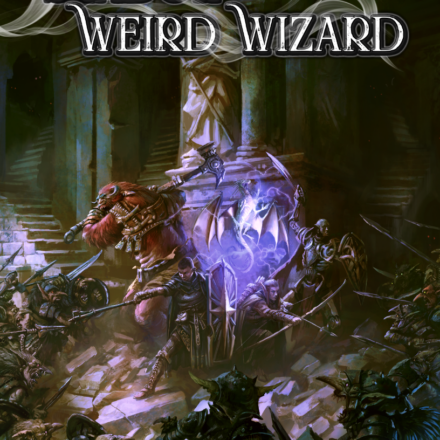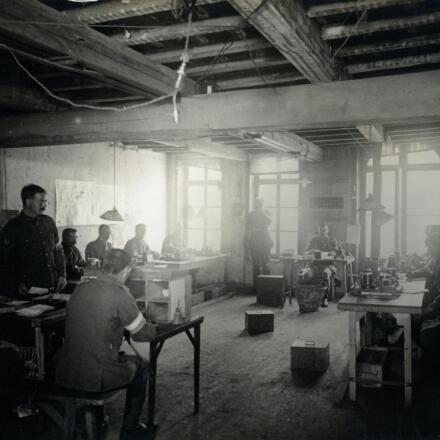I almost canceled my new Cyberpunk: Red campaign. Well…I thought about it. I was four sessions in and the game had not gelled. That is a red flag for me. I did some introspection and pondered what about it was not working for me. When I had a handle on what wasn’t working, I talked to my players. After a good discussion, we decided not to dump the game, but rather re-tool the campaign. So, I thought I would talk today about the two options we have when a game is not quite doing it for us: Retool or Dump.
Gelling The Campaign
A new campaign is like the first season of a TV series. The characters are not fully developed, and everything is a bit clunky. With a good TV series, within a few episodes, it either comes together and forms a solid series, or it never gels and winds up getting canceled.
The same holds true for campaigns. In those first few sessions, everything is a bit clunky. Players have not fully embodied their characters, the first story never has the same emotional hooks or depth, and if the system is new, everyone is fumbling with the rules. After a few sessions, one of two things happens… It gels – that is everything starts working, players get a good feel for their characters, the emotional investment in the story takes hold, and everyone starts getting comfortable with the game system – or it does not.
I can’t list all the characteristics of what a campaign feels like when it gels, but you can feel it. The game starts working, people are interested, the story is compelling, the system is fun to play, and overall everyone is having a good time. When it does not gel, it’s the opposite, everything is a struggle.
Fail Early
I have in my 40+ year tenure as a GM, had a lot of campaigns not take off. I have canceled more of them than I can keep track of. Over the years, I developed a philosophy of: “Fail Early and Move On.” This means that if a game is not working out after a few sessions, it’s time to make a decision about retooling it or dumping it.
The idea is that time is limited and precious. If your game is not generating joy for you, scrap it and find another game that will bring you joy. For those of you who only play one system, scrap the campaign you have for another one.
The Four Session Rule
To help this along, I have what I call the Four Session Rule: Play four full sessions of the campaign, with no changes. I like four sessions because it gives you a few sessions to get used to the rules, as well as enough play to engage most of the core rules of the game. It also lets you get at least one full story done, so you can see if the setting and plots are working, and four sessions lets the players get comfortable with their characters.
At the end of the fourth session, discuss as a group if this game is gelling or not. If it is, keep playing. If it is not, what needs to be changed/fixed to get the game to gel?
This rule has become a part of the Social Contract for my group. At the end of the fourth session, we have a discussion and make a decision.
What to Look For
So how do you know if you should dump a campaign or just retool it? Again, there is no exact science on this, but here are the criteria that I use.
The problem areas I look for are the following:
Rules are not a good fit
I am a person who likes a light to moderate amount of crunch to a game. I like rules and I like mechanics until they become too complex. So if a game has rules that are either too simple or too complex, then the rules are not a good fit for me. That is also true for my players. If the rules are not working for them, then it also is not a good fit. I am lucky in that my players have about the same range of rule complexity as I do.
In this same category is also something a bit more subjective. Are the rules fun? That is, is the game fun to play? If the rules are annoying or frustrating then they are likely going to be a pass for me.
Setting Is Not Working
The next issue, for me, is if the setting is not engaging or worse is frustrating. As a GM, the setting of the game is the foundation for the stories that I am going to facilitate. If the setting is not exciting, or designed in a way that is hindering my ability to craft the plots I want to tell, then the game is going to be less enjoyable for me and start draining my energy.
The Core Loop Is Not Interesting
The core loop of the game is the main type of story that the characters engage in. For something like Blades in the Dark, these are jobs. In a Gumshoe game, investigations. For a D&D game, it might be Dungeon Crawling. Whatever that core loop is, it needs to be interesting and enjoyable for more than one session. After all, it’s the core loop, the majority of stories will be centered around this activity, so if this is difficult or a struggle, then why are we playing it?
Issues with Characters
Are the characters fitting into the setting, the core loop, and within the rules? Are the characters interesting, the kind of people I want to get to know through a campaign? Are they a good team/group/party?
No matter what you think as a GM, your best plots and ideas don’t work unless the characters are interesting, work mechanically, and can operate as a team.
Retool or Dump
Once you know what is not working, you have to decide if you want to retool or dump the campaign. This boils down to the following question:
Can you easily change something or several things to get the game to gel?
Some things are going to be easy to change and some things are embedded into the fabric of the game. Here is what I think about:
- Rules – Can a house rule or two fix the issues? Then retool. Otherwise, dump the campaign for a rules system that is a better fit.
- Setting – Can you change the thing you are not enjoying with the setting without the premise of the setting unraveling? For instance, can you just move the game to another location and solve the problem, or are you fighting with the concept of magic in Eberron? The former is easily fixed, but the latter is not.
- Core Loop – This one is tricky. Some games tightly couple the core loop of the game to the setting and rules (e.g. Blades in the Dark). Whereas other games have a far less tightly coupled core loop (e.g. D&D). You can’t really play Blades in the Dark if you do not want to “do jobs”, but you could find something else to do if you did not want to Dungeon Delve in D&D.
- Characters – Are the players amenable to making changes to their characters? Would some of them make new characters? Make mechanical changes to them? Can the group change the premise of how they came together as a group?
After you look at the changes that need to be made you can decide if you want to retool the game or dump it.
If you Dump It
This is pretty easy. Stop playing that campaign and look for something that is going to work better. Use what you learned as a way to inform your next campaign choice.
If you Retool
If you retool, figure out what you need to change. Discuss with your group what story and continuity changes may need to be made to make the adjustments. Keep the parts of the game you like, and change out what is not working.
You can decide to have an in-game reason for why these changes took place, or you can just make the changes by fiat, and move on.
CPR Case Study
For my Cyberpunk Red campaign, there were a few issues that were preventing things from gelling:
- The Red setting is different from 2020 or 2070, and I struggled with how it felt more post-apocalyptic at times and less chrome and neon. That was an issue that I could not fix wholesale, but I could lessen it by keeping the characters in Night City and not putting them out on the wasteland roads.
- Core Loop – our campaign idea was to be a Nomad family traveling around helping people, but that was emphasizing the setting issues.
- Characters – I had one player who made a variant of the Rockerboy (Celebrity Chef) that on paper worked, but at the table never worked for me. We also did not have anyone who could do healing and we lacked a Netrunner. Not having a Netrunner in any Cyberpunk game was making writing plots a challenge.
As I said, we decided to keep the game, and here are the fixes we made:
- We centered the game in Night City. Our Nomad clan existed, but the characters were charged to set up a home base in Night City where the Clan could come to when they were in town, and the characters could acquire supplies for the nomads while they were on the road.
- Instead of helping people on the road, the characters are going to clear out and then take responsibility for some city blocks in the combat zone. They can still do good and help people, but it will be centered in the city, and in doing so will also allow us to have more recurring NPCs, which is something the players wanted.
- The one player who was playing the Nomad retired that character and created a MedTech, so the group had access to medical aid. The Rockerboy/Chef retired their character and made a Netrunner.
We have had two sessions since then, and the game is running much better. It is starting to gel, and I think overall we are all happier.
A Watched Campaign Never Gels? (That isn’t true, but it’s catchy.)
Campaigns are tricky. Some work and some don’t, and it’s hard to get all the factors right before you start playing the game. At the same time, your gaming time is valuable and you should be getting energy from your game. So run a new campaign for a bit (I like 4 sessions) and see if it gels. If not, figure out why it’s not working and then decide if you need to retool or dump it.
How about you? Do you have a set number of sessions to see if a campaign is going to gel? Do you retool struggling campaigns or do you just move on to something else?
















